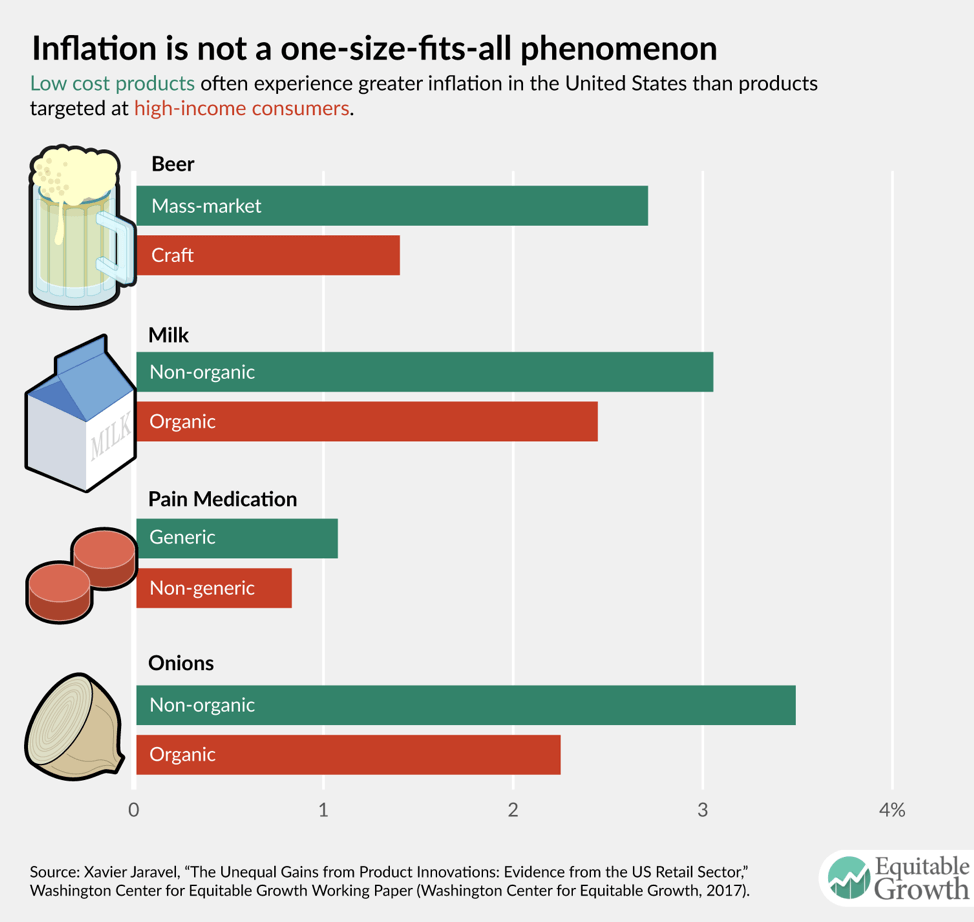Weekend reading: “low wage workers” edition
This is a weekly post we publish on Fridays with links to articles that touch on economic inequality and growth. The first section is a round-up of what Equitable Growth published this week and the second is the work we’re highlighting from elsewhere. We won’t be the first to share these articles, but we hope by taking a look back at the whole week, we can put them in context.
Equitable Growth round-up
Equitable Growth’s Executive Director and Chief Economist, Heather Boushey, had an op-ed featured in The Hill about her concerns with a report released by a bipartisan group convened by the American Enterprise Institute and The Brookings Institution that included herself. Boushey fears that shortcomings in their proposed paid family and medical leave plan could steer policymakers in the wrong direction and encouraged further bipartisanship on the issue. Additionally, Equitable Growth released a piece on the issue reflecting on Boushey’s comments in the op-ed.
Brad DeLong rounds up his latest worthy reads on equitable growth from both inside and outside Equitable Growth.
Equitable Growth’s Director of Tax Policy, Greg Leiserson, participated in the Tax Policy Center’s event “Cost and Benefits of Tax Regulations: Exploring Treasury’s and OMB’s New Responsibilities.” Leiserson provided slides for the event in which he argues that the traditional tools for tax analysis are the appropriate tools for the cost-benefit analysis of tax regulations, that social benefits and costs should not be qualified in this approach, and that the IRS should not claim to have definitive answers to these questions in a regulatory impact analysis.
Links from around the web
David Leonhardt argues in an opinion piece that GDP has become an outdated measurement for U.S. economic growth and that new sets of statistics are required to better capture the realities of everyday Americans. Leonhardt argues that because of inequality, the GDP skews toward an affluent segment of the population receiving a majority share of the economy’s growth. (nyt)
After interviewing hundreds of American men out of work, Andrew Yarrow discusses the decline in the male labor force participation rate since the Great Recession of 2007-2009. Specifically, Yarrow discusses the idea of a U.S. economy that no longer has a place for many working-class men, an opportunity President Trump seized upon when running for election. (vox)
In bustling metropolises such as Washington, D.C., restaurant workers and bartenders depend on tips to make ends meet. But so often, surviving off of tips is highly unreliable, with periods of slow work and foreign tourists who aren’t accustomed to tipping in their home countries. An anonymous bartender discusses how relying on tips has made workers more vulnerable to sexual harassment and discrimination while on the job in this opinion piece. (vox)
Weather can have a profound impact on the lives of many workers in the United States. After dumping rain across the Carolinas, low-wage workers in the path of Hurricane Florence are facing economic hardships after businesses that were forced to shutter from the effects of the storm. Alexia Fernández Campbell discusses how federal legislation including the Fair Labor Standards Act has made it difficult for low-income workers to be guaranteed a steady source of income. (vox)
Fenit Nirappil discusses the majority support of the D.C. Council to repeal a ballot measure that passed in June to pay the standard minimum wage for tipped workers. A majority of the Council members argue that it is necessary to protect the city’s dining industry and to prevent higher labor costs, higher prices, fewer jobs, and potential pay cuts. (washingtonpost)
Friday figure

Figure is from “Equitable Growth’s: In an age of inequality, aggregate and mean economic statistics don’t tell us enough”
